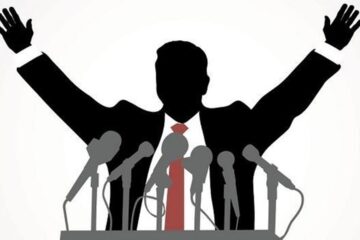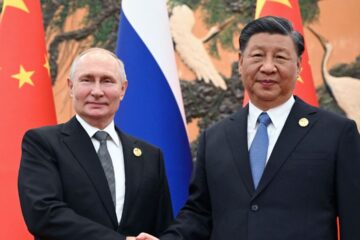Lying in Politics – Reflections on the PENTAGON PAPERS
Here is a summary of an essay written by Hannah Arendt in 1972. It is one of the 4 essays gathered in her book “Crises of the Republic” (1972) :
- Lying in Politics – Reflections on the Pentagon Papers
- Civil Disobedience
- On Violence
- Thoughts on Politics and Revolution – A commentary

Key takeaways:
- Lies are often much more plausible than reality. Reality tends to confront us with the unexpected. US authorities’ discourse was in line with the public’s expectations to see the US prevail in Vietnam. However, the Vietnamese David won over the American Goliath.
- US authorities knew they were losing in Vietnam. They lied to preserve the image of the US as the greatest world power.
- Liars self-deceived themselves due to their tendency to make reality fit into their theory of the US being the greatest world power.
- Congress members, who were lied to, didn’t have the knowledge to counter those lies due to their lack of will, means and security clearance to acquire this knowledge.
Recap on the Pentagon Papers:
Hannah Arendt takes the episode of the Pentagon Papers to reflect upon the subject of lying in politics.
Just to refresh your mind, the Pentagon Papers refers to the publication in 1971 by The New York Times of a secret report on the actions of US troops in Vietnam. The US were conducting military operations there since 1955. The Pentagon Papers revealed that Lyndon B. Johnson’s administration persistently lied to the US population and to the US Congress on the operational reality in Vietnam. The administration actually lied on the fact that the US wouldn’t be able to win the war and that US troops were suffering heavy losses. They controlled Southern Vietnam and were fighting against communist Vietnamese rebels in Northern Vietnam (the Viet Minh). They were actually also fighting against communist rebels in Southern Vietnam (the Viet Cong).

Why lying about US failures in Vietnam?
According to John T. McNaughton, then Assistant Secretary of Defence for International Security Affairs, the Pentagon’s objectives in 1965 were at:
- 70% to avoid humiliation and preserve the US reputation
- 20% to keep South-Vietnam out of China’s hands
- 10% to improve South-Vietnamese people’s lives.
As a matter of fact, the US goal was to behave like the greatest power in the world and convince the rest of the world of this simple fact. Therefore, the goal was not to avoid a humiliating defeat, but rather to avoid admitting it and save face. In order to best shape their country’s image and win hearts and minds, US decision-markers had to adapt their discourse to their different audiences:
- Communists had to feel strong pressures
- South-Vietnamese had to have their morale buoyed
- US allies had to trust the US as underwriters
- The US public had to support their decision makers’ risk-taking policies
The lies:
One of the biggest lies told to the US public was about the Tonkin incident. It refers to false accusations by top Pentagon decision makers that North-Vietnamese ships attacked US troops in early August 1964. The goal was to justify, in the eyes of the Congress, sending more troops to Vietnam, while at the time no one was clear on what actually the US interests were in Vietnam.
By and large, there existed patent divergences between intelligence reports and information told to the public and the Congress. Indeed, few in the intelligence community believed that the domino theory would apply to South-Vietnam and neighbouring countries if the US were to withdraw, though public discourses extensively resorted to this argument.
Domino theory (US post-WW2 foreign policy): the fall of a non-communist country to communism would precipitate the fall of non-communist governments in neighbouring States.
Public discourses also revolved largely around the alleged existence of a menacing Sino-Soviet communist bloc, contrary to known facts on the relationship between China and the USSR since Stalin’s death in 1953.
These lies were meant to justify the amount of resources used for the US intervention in Vietnam that fitted into a broader strategy of “containment” against the USSR and, more broadly speaking, communism.
Why lies worked (or at least were hardly detected):
According to Hannah Arendt, deception never comes into conflict with reason. As a matter of fact, lies are often much more plausible than reality, because “reality has the disconcerting habit of confronting us with the unexpected”.
The US being then a superpower, it was expected to prevail in Vietnam. Conversely, it was unexpected to see the Vietnamese David win over the American Goliath.
Therefore, US authorities anticipated the US public’s expectations and strove to meet them.
Those lied to:
What struck Hannah Arendt was top US politicians’ lack of knowledge of the history of Vietnam and of the decade-long rift between Russia and China. On top of that, Congress members did not have access to relevant documents on what was happening on the ground. This was due to the overclassification of these documents, as well as to a lack of will and resources (time and personnel) to look for relevant and updated information.
The liars who deceived themselves:
Usually, as Hannah Arendt explains: “the more successful a liar is, the more people he has convinced, the more likely it is that he will end by believing his own lies“. However, in the case of the Pentagon Paper, self-deception didn’t occur at the end of the deception process, but at the beginning…
Hannah Arend explains that public servants of great intellectual abilities were the ones who lied to the US population and to the US Congress. She describes them as very rational and pragmatic people, though with a strong tendency to fit reality into their theory. In fact, they ignored and denied information that contradicted their mental framework (“disconcerting contingency“).
By living in such a de-factualised world, these liars actually convinced themselves of their own lies before convincing their targeted audience. They were so obsessed with their patriotic mission to defend the image of their country that they dismissed everything that got in the way.



1 Comment
TRUTH and POLITICS by Hannah Arendt – geopol-trotters · 17 June 2025 at 8:05 pm
[…] are interested in Hannah Arendt’s work, I have also written an article synthesising her essay “Lying in Politics – Reflections on the Pentagon Papers” (1972). Anyone interested in the notion of “post-truth” should read these two essential […]